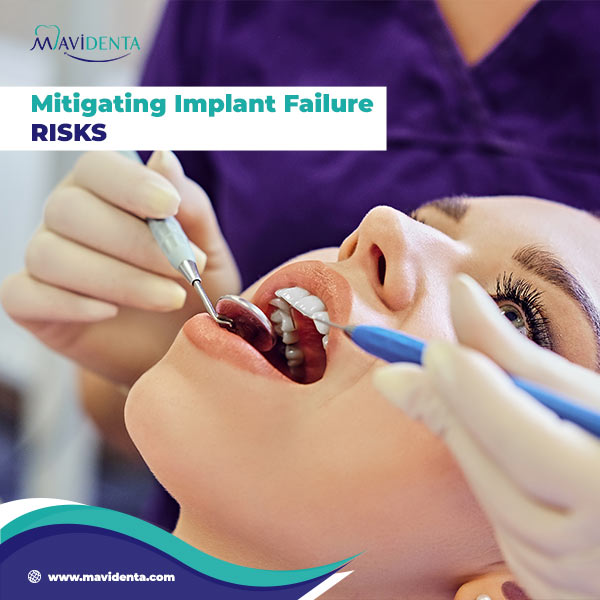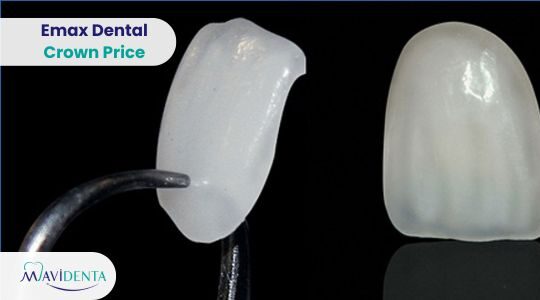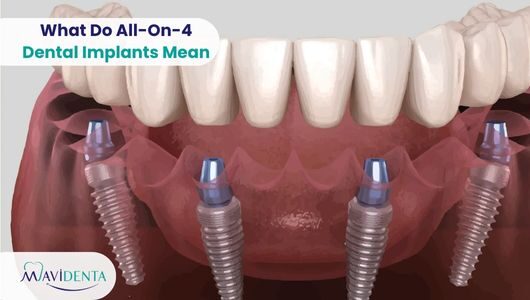Curious about the factors behind dental implant failure? Keep reading to know more about who is responsible for dental implant failure and you should take into consideration the patient actions, dentist expertise, and implant-related variables.
Understanding Dental Implants
Dental implants are considered artificial tooth roots made of biocompatible materials such as titanium. They are surgically placed in the jawbone and serve as a sturdy base for replacement teeth. This procedure provides a long-lasting solution for missing teeth.
The basics of dental implants: Dental implants are a popular and effective solution for replacing missing teeth. They consist of three main components:
- The implant is made of titanium and surgically placed into the jawbone.
- The abutment connects the implant to the replacement tooth or crown.
- The prosthetic tooth or crown is custom-made to match the surrounding teeth.
Factors influencing implant success: Many factors affect the success of dental implants, including the general health of the patient, oral hygiene, and the experience of the dental professional performing the procedure. In addition, proper bone quality and integration (Osseointegration), as well as post-operative care and maintenance, play pivotal roles in implant longevity.
It is important to note that dental implant failures are rare, but their success rates are high, according to some reports. Therefore, delving into the intricacies of who is responsible for dental implant failure uncovers a shared responsibility between the patient’s commitment to oral health, adherence to aftercare instructions, and the dentist’s proficiency in ensuring accurate implant placement and appropriate treatment planning.
Mavidenta Clinic has a highly successful record of ensuring a good experience for dental implants. Our skilled dentists help and take care of our patients at every step. Feel free to book your online consultation now!
Who is responsible for dental implant failure ?
Dental implant failure can be influenced by different factors, and the responsibility can be attributed to different parties involved in the treatment process. It is important to understand that while dental professionals seek to provide successful implant outcomes, there are some instances where complications or failure can occur. Here are the parties who may share responsibility or play a role in dental implant failure:
Patient
Patients have a responsibility to maintain good oral hygiene practices and follow post-operative instructions provided by their dental professional. Neglecting oral hygiene, smoking, or not seeking timely dental care can contribute to implant failure.
Dental Professional
The dental professional is responsible for accurate treatment planning, proper implant placement, and providing appropriate follow-up care. They should thoroughly assess the patient’s oral health, bone density, and overall suitability for dental implants. Any errors or negligence in the treatment process can contribute to implant failure.
Laboratories and Dental Technicians
Dental laboratories and technicians play a role in creating the prosthetic components, such as the crown or bridge, that attach to the implant. If there are any issues in the design, materials used or it does not fit the patient, it can impact the longevity and success of the implant.
Communication and precautions are essential for patients and dental professionals to minimize the risk of implant failure and ensure the best possible outcomes.
To avoid any failure, contact our clinic now. Mavidenta clinic is the Most Trust Dental Clinic in Istanbul.
Best Dental Implant Clinic In Istanbul
Common Causes of Dental Implant Failure

There are several reasons for dental implant failure as follows:
Poor Oral Hygiene Practices
Patients who do not take care of proper oral hygiene, including regular brushing, flossing, and professional cleanings, are at a higher risk of dental implant failure. Lack of oral hygiene allows bacteria to accumulate around the implant, leading to infection and inflammation that can compromise the implant’s stability and integration.
But who is responsible for dental implant failure? Both the patient and the dental professional share the responsibility of promoting good oral hygiene practices.
Inadequate Bone Density
Sufficient bone density is crucial for the successful placement and long-term stability of dental implants. In cases where the patient has insufficient bone density, procedures such as bone grafting or sinus lifts may be necessary to enhance the implant’s support.
Infection and Peri-Implantitis
Infection around the implant site, known as peri-implantitis, can lead to implant failure. It is often caused by untreated bacterial infections. Both the patient and the dental professional have a responsibility to monitor the implant location for signs of infection, provide appropriate treatment if infection occurs, and establish a maintenance plan to prevent peri-implantitis.
Incorrect Placement
Improper implant positioning, angulation, or depth can lead to many complications, including nerve damage, or lead to inadequate support for the prosthetic restoration. To ensure success and longevity of dental implants, it should be placed accurately and correctly.
It is worth noting that the dental professional is the person who is responsible for dental implant failure if he places the implant incorrectly. He should carefully check the patient’s anatomy and determine the placement accordingly.
Material Complications
Dental implant failure can also result from complications related to the materials used. A fracture, erosion, or any other problem with the prosthetic components, such as poor fit or instability, can occur in the implant. The dental professional and the dental laboratory are responsible for selecting high-quality implant materials and prosthetic components.
Regarding dental implant failure, responsibility is shared between the patient and the dental professional. On the one hand, patients must maintain good oral hygiene practices and follow post-operative care instructions; on the other hand, dental professionals are responsible for accurate treatment planning, proper placement, and monitoring of the implant’s health.
Through consultation and discussion of these common causes of implant failure, both parties can contribute to maximizing the success and longevity of dental implants.
Also check: Best Place To Get Your Teeth Done in Turkey
Implant Manufacturers and Material Quality
Implant manufacturers should be responsible for producing high-quality dental implant materials that meet specified standards and ensure biocompatibility.
Impact of implant design and material: The design and material of dental implants play a significant role in the success and longevity of dental implants. The design of the implant can affect its stability, osseointegration (integration with the jawbone), and long-term performance. In addition, the implant manufacturers should be responsible for producing high-quality implants that meet certain standards and undergo thorough testing.
Also read: Dental Centre Turkey Payment Plan
The Role of the Patient in Implant Failure
Patients play a vital role in implant failure prevention through preoperative responsibilities and postoperative care and maintenance. The patient could be the one who is responsible for dental implant failure, so he must take care of all instructions told by the dentist.
Preoperative Responsibilities
Patients play a crucial role before undergoing dental implant surgery to minimize the risk of implant failure. These preoperative responsibilities include:
- Providing accurate medical history: Patients must disclose their complete medical history, including any underlying health conditions, medications, or allergies, to their dental professional. Certain medical conditions or medications may affect the success of dental implants.
- Following oral hygiene instructions: Patients should follow the oral hygiene instructions given by their dental professional before the implant surgery. This may involve thorough brushing, flossing, and rinsing with an antimicrobial mouthwash to ensure a clean and healthy oral environment.
- Managing systemic health: Patients should manage their systemic health by maintaining a balanced diet, quitting smoking, and managing chronic conditions such as diabetes or hypertension.
Postoperative Care and Maintenance
After the dental implant surgery, patients have an ongoing responsibility to care for their implants and maintain oral hygiene. These postoperative responsibilities include:
- Following postoperative instructions: Patients must closely follow the postoperative instructions provided by their dental professional. This may include guidelines on diet, oral hygiene practices, medications, and restrictions on activities that could affect the healing process.
- Maintaining oral hygiene: Patients should maintain excellent oral hygiene by brushing their teeth at least twice a day, flossing regularly, and using an antimicrobial mouthwash as recommended. Regular professional cleanings and check-ups are also essential to check the health of the implant and surrounding tissues.
- Monitoring and reporting changes or issues: Patients should pay attention in monitoring their implant location and surrounding tissues. Any signs of pain, swelling, redness, or abnormal sensations should be promptly reported to their dental professional. Early detection and intervention can prevent complications and increase the chances of a successful implant outcome.
Explore: Dental Implant Cleaning Cost
External Factors and Complications
There are some external factors and complications that can increase the risk of dental implant failure, so kindly pay attention:
Impact of Lifestyle Habits
While the patient is the one who is responsible for dental implant failure as well as the dental professional, patients’ lifestyle habits can significantly influence the success of dental implants. It is important for patients to be aware of the following:
- Impact of smoking: Smoking has been linked to a higher risk of implant failure due to its negative effects on blood flow, delayed healing, and increased susceptibility to infection.
- Importance of nutrition: Adequate nutrition plays a crucial role in the body’s healing process. Patients should maintain a balanced diet rich in essential nutrients, particularly vitamins C and D, calcium, and protein, to support proper healing and implant integration.
- Managing bruxism: Patients with bruxism, or teeth grinding, can exert excessive forces on dental implants, leading to complications or failure. The dental professional may recommend the use of a nightguard or other protective measures to mitigate the risks associated with bruxism.
Medical Conditions and Medications
Certain medical conditions and medications can impact the success of dental implants, and patients should disclose the following information to their dental professional:
- Diabetes management: Poorly controlled diabetes can impair healing and increase the risk of implant failure.
- Autoimmune disorders: Conditions like rheumatoid arthritis or lupus can affect the body’s healing response and increase the likelihood of complications.
- Medication considerations: Certain medications, such as bisphosphonates for osteoporosis or immunosuppressants, can impact bone healing and implant integration.
Patient is not solely the one who is responsible for dental implant failure but also the dental professional. So, collaboration between patients and dental professionals is essential to achieve successful outcomes in dental implant procedures.
Also read: Gum Infection around Implant
Mitigating Implant Failure Risks
Let us discuss how to mitigate the risks of implant failure, keep reading.
Collaborative Efforts for Success
While responsibility for dental implant failure is shared by patients and dental professionals, collaborative efforts between both parties are crucial to minimize risks. Key aspects include:
- Comprehensive treatment planning: Dental professionals are responsible for thorough treatment planning, including evaluating patient-specific factors and selecting appropriate implant materials and techniques. Patients should actively participate in discussions, provide accurate medical history, and express their concerns or expectations.
- Informed consent: Dental professionals should ensure patients receive clear and comprehensive information about the implant procedure, potential risks, and expected outcomes.
- Adherence to instructions: Patients must follow preoperative and postoperative instructions provided by their dental professionals.
Importance of Regular Follow-ups
Regular follow-up visits are essential for discovering any potential issues. Key aspects include:
- Monitoring implant stability: Dental professionals assess the stability and integration of the implant during follow-up visits. Any signs of implant mobility or discomfort should be addressed promptly to prevent further complications.
- Oral health evaluation: Regular check-ups allow dental professionals to evaluate the patient’s overall oral health, including the condition of the surrounding tissues and the implant location.
- Professional cleanings: Professional cleanings help maintain optimal oral hygiene and prevent peri-implant diseases. Dental professionals can provide guidance on proper cleaning techniques and recommend specialized tools or products, if necessary.
By fostering collaboration between patients and dental professionals and prioritizing regular follow-ups, the risks of dental implant failure can be mitigated. Not only the patient who is responsible for dental implant failure but also the dental professional.
Expert Care From Best Clinic In Turkey For Dental Implants
Responsibility of the Dental Practitioner
The dental practitioner is responsible for minimizing the risk of dental implant failure through thorough assessment, skillful placement, and restoration.
Thorough Assessment and Treatment Planning
Dental practitioners play a crucial role in minimizing the risk of dental implant failure through a comprehensive assessment and accurate treatment planning process. Key aspects include:
- Comprehensive patient evaluation: Dental practitioners are responsible for conducting a comprehensive evaluation of the patient’s oral health.
- Accurate diagnosis and treatment plan: Based on the assessment, dental practitioners should provide an accurate diagnosis and develop a customized treatment plan that addresses the patient’s specific needs and goals.
- Addressing risk factors: Dental practitioners should identify and manage any risk factors that may contribute to dental implant failure, such as systemic health conditions or compromised bone quality.
Skillful Placement and Restoration
The dental practitioner’s expertise and skill are vital during the implant placement and restoration phases. Key aspects include:
- Precise implant placement: Dental practitioners must possess the necessary knowledge and skill to accurately position dental implants in the optimal location and angulation. Proper implant placement ensures stability, adequate support, and favorable functional outcomes.
- Ensuring bone integration: Dental practitioners should ensure successful integration of the implant with the surrounding bone during the healing process.
- Quality restoration: The final restoration, such as a crown or denture, must be skillfully fabricated and securely attached to the implant. Dental practitioners should ensure proper occlusion, aesthetics, and functional harmony to optimize the long-term success of the implant.
While the patient may be the person who is responsible for dental implant failure dental practitioners bear a significant responsibility in minimizing the risk of dental implant failure through thorough assessments, individualized treatment planning, skillful implant placement, and high-quality restorations. Continued professional development and adherence to best practices are crucial for dental practitioners to fulfill their responsibility in achieving successful implant outcomes.
Complete Mouth Dental Implants Cost
We highly recommend our clinic, Mavidenta, for restoring your missing teeth using state-of-the-art technology. We have professional dentists with over fifteen years’ experience. Call us now!
To conclude, who is responsible for dental implant failure? The responsibility for dental implant failure is multifaceted, encompassing patient adherence to aftercare, oral hygiene, and overall health, as well as the proficiency of the dental professional in treatment planning and implant placement. Both parties play pivotal roles in minimizing the risk of implant failure and ensuring successful outcomes.
FAQs
Can poor oral hygiene lead to dental implant failure?
Poor oral hygiene is a significant factor in dental implant failure. Neglecting oral care can lead to gum disease and bone loss, which can compromise implant stability.
Can medical conditions affect the success of dental implants?
Yes, certain medical conditions like uncontrolled diabetes or autoimmune diseases can increase the risk of implant failure.
Who is primarily responsible for the success of dental implants?
Both the patient and the dental professional.











